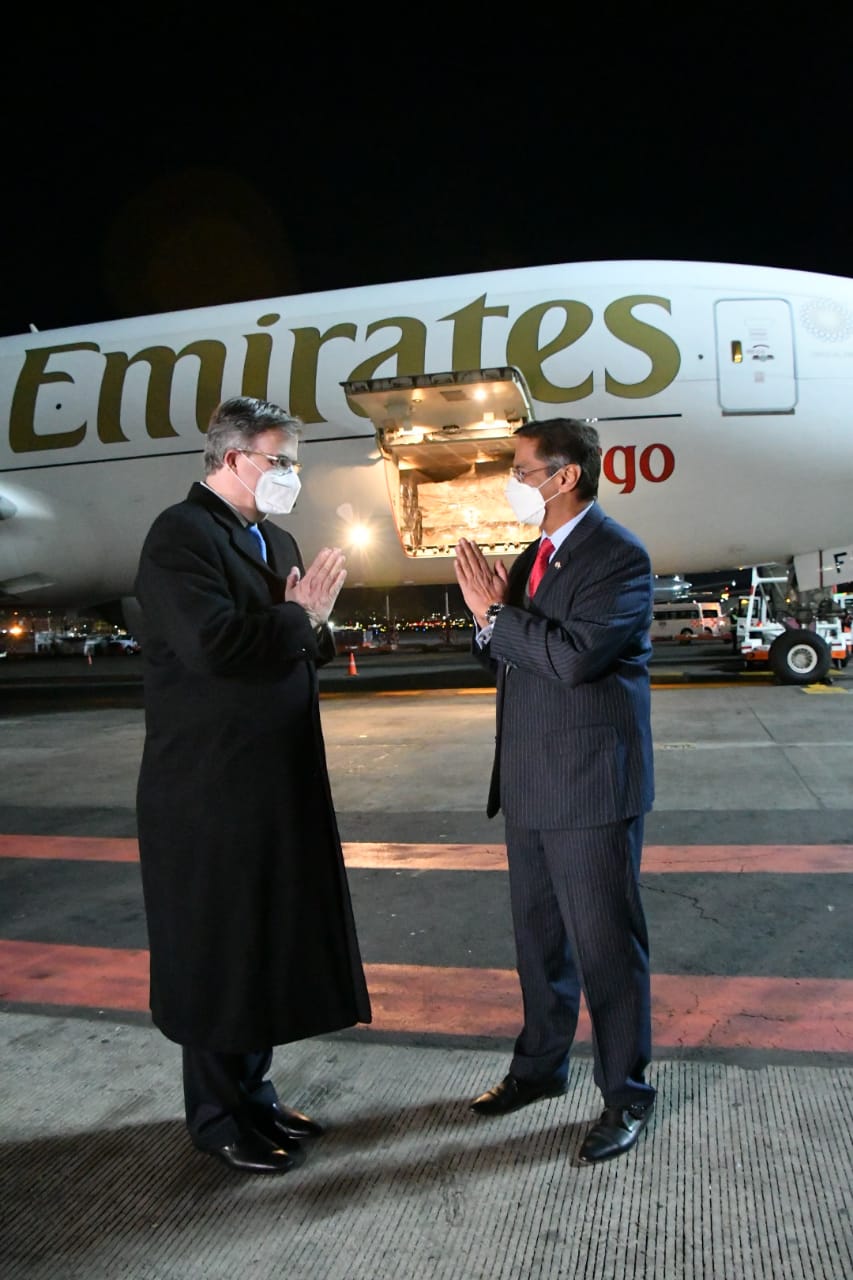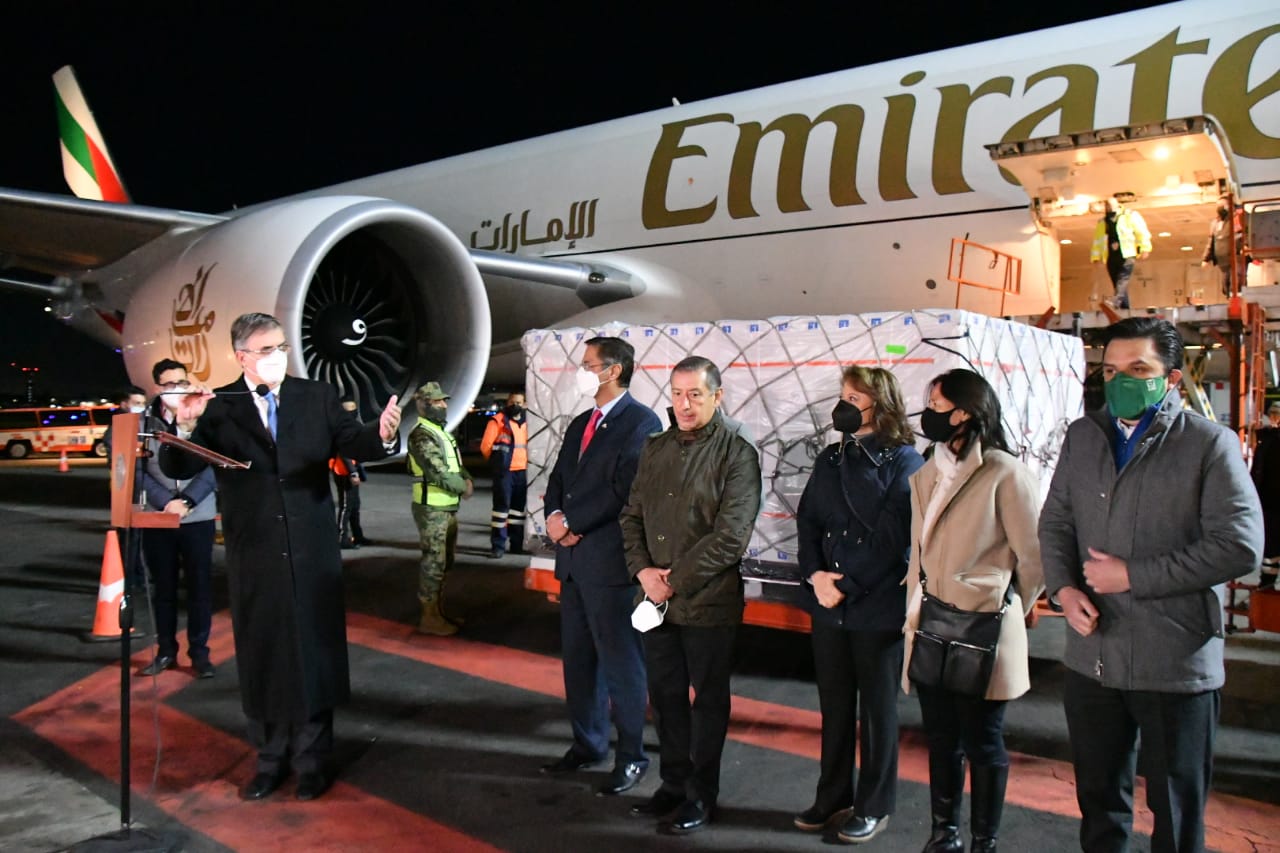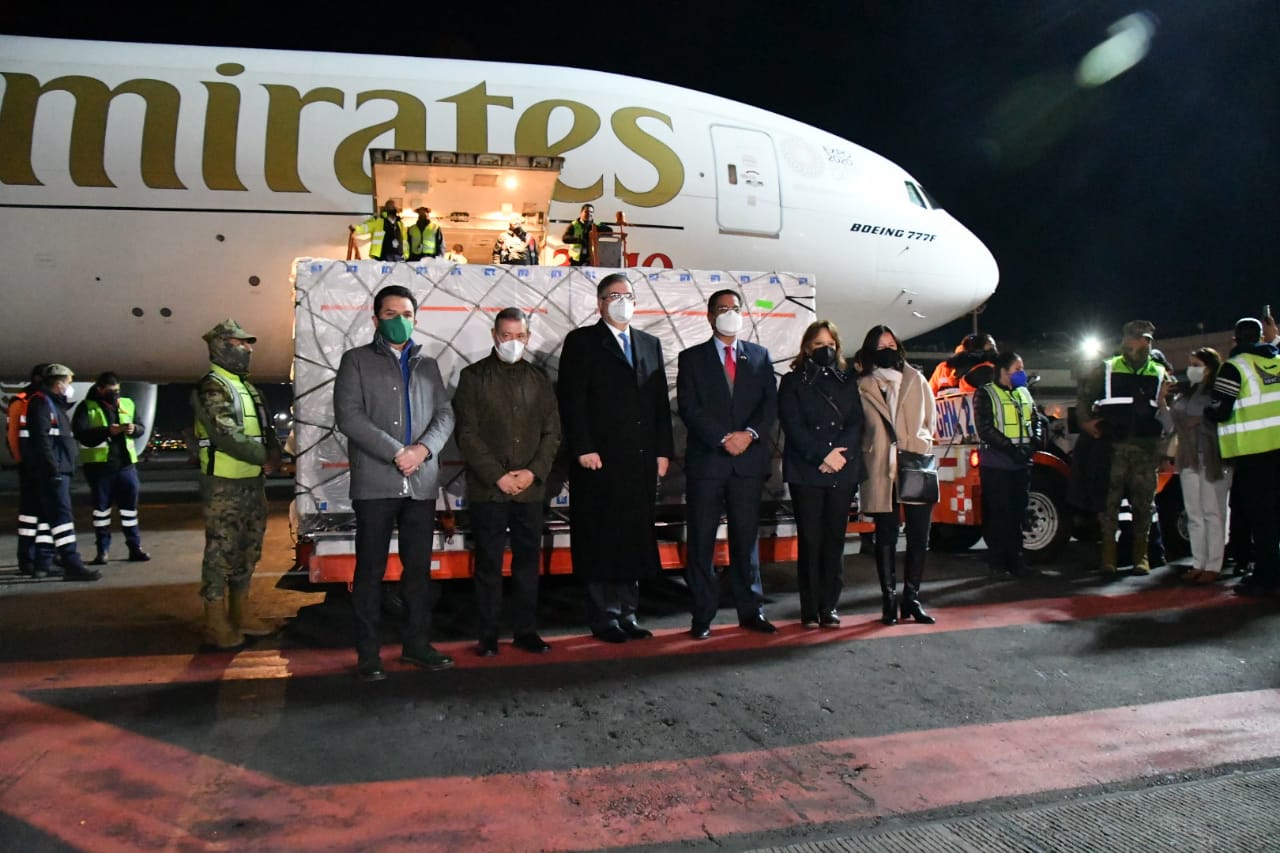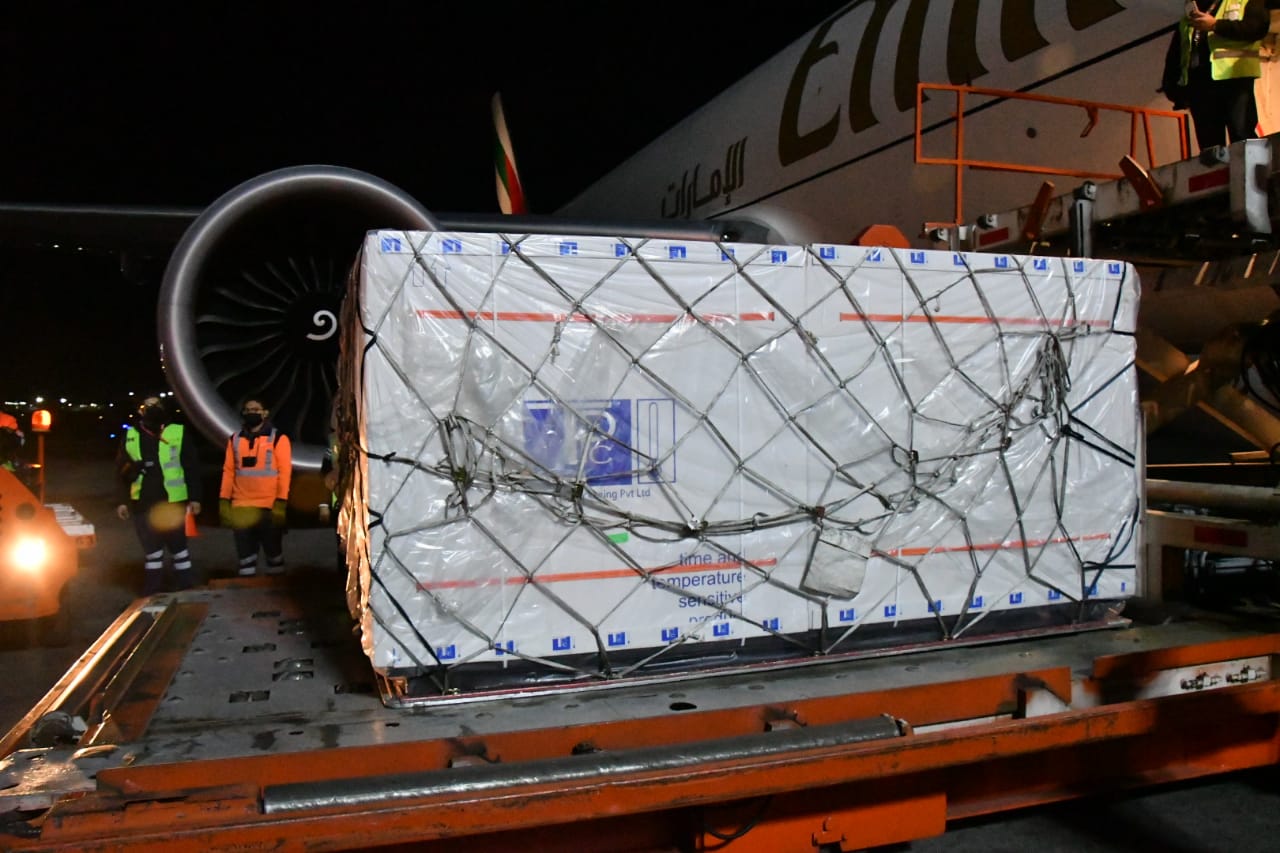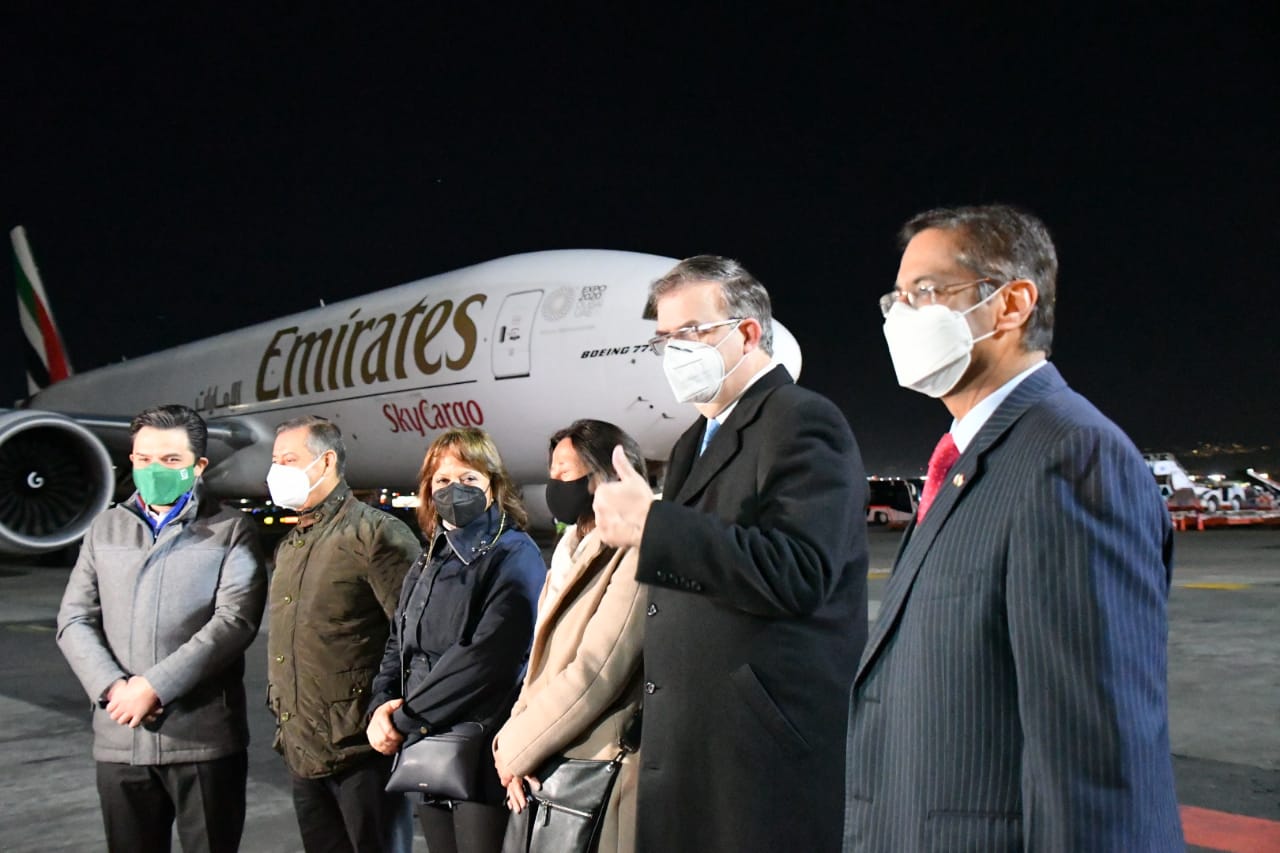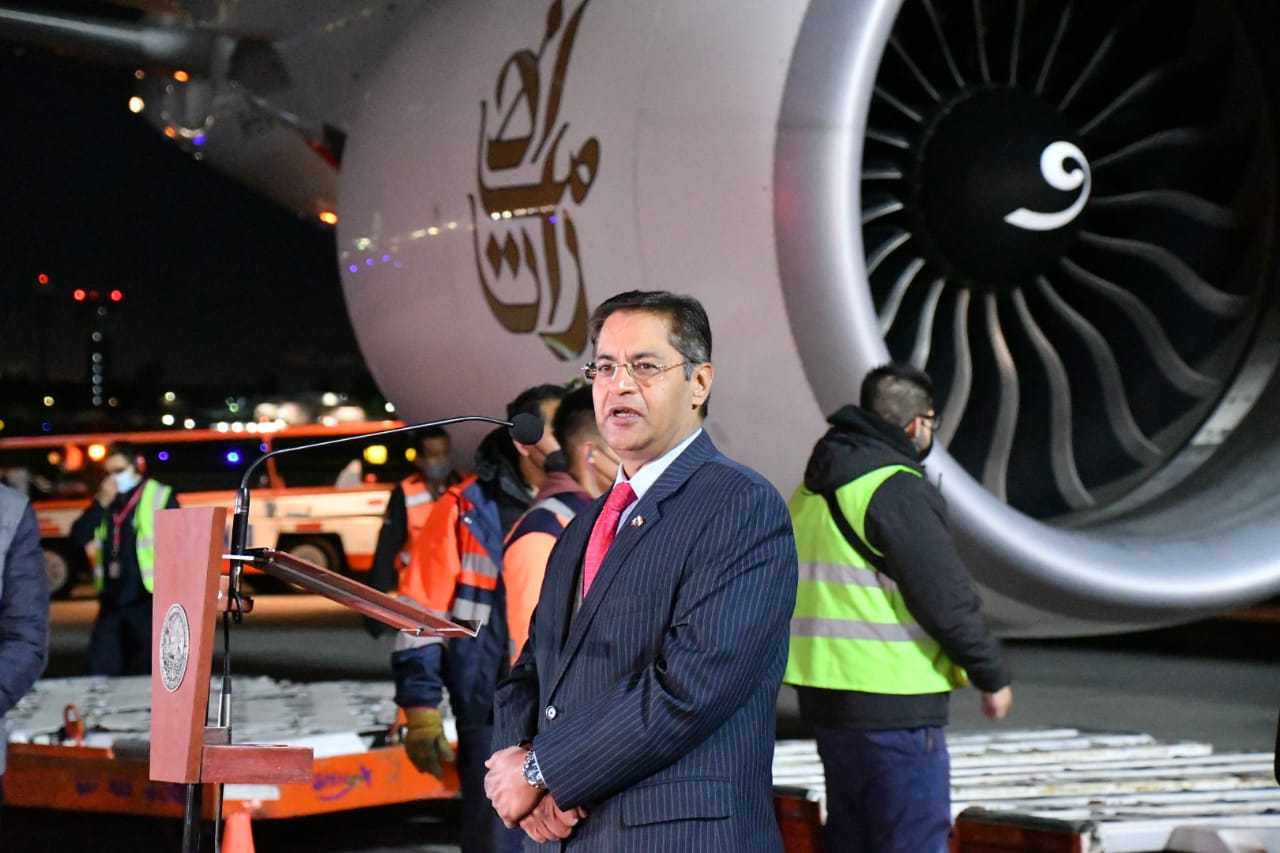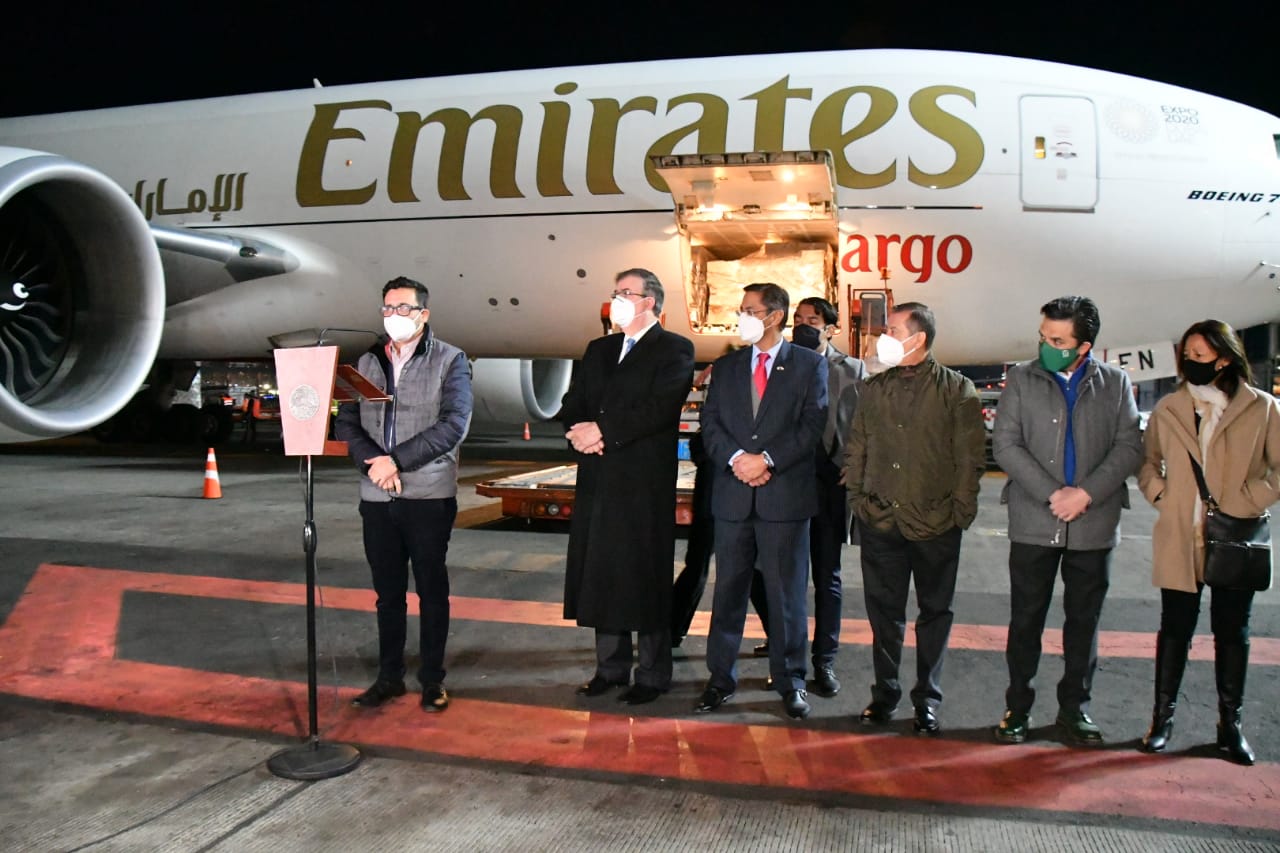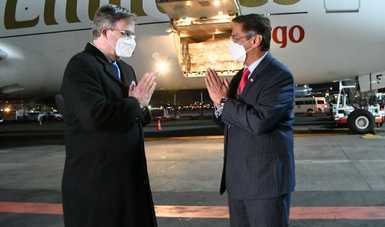- The AstraZeneca vaccine comes from the Serum Institute of India, with which Mexico has a contract for just over two million doses.
- It will help start phase two of COVID-19 vaccinations in Mexico.
This Sunday, the Government of Mexico received a first shipment of 870,000 doses of the AstraZeneca SARS-CoV-2 vaccine from Mumbai, India in order to continue the National Vaccination Policy to prevent COVID-19 in Mexico.
This first AstraZeneca delivery arrived at the Benito Juárez International Airport in Mexico City at 3:17 a.m. with 42 percent of the just over 2 million doses that the Health Ministry—through Laboratorios de Biológicos y Reactivos de México, SA de CV (Birmex)—contracted to purchase from the Serum Institute of India.
During the ceremony to receive the vaccines, the Secretary of Foreign Affairs, Marcelo Ebrard, noted that Mexico was the first country in Latin America to receive COVID-19 vaccines and, with this shipment, there are now two sources of supply.
This shipment is the largest received so far. It will enable Mexico to expand and accelerate its immunization strategy despite the global shortfall in vaccine production.
He thanked the government of India, the main producer and exporter of vaccines, for authorizing the shipment of this first batch, in addition to thanking Ambassador Manpreet Vohra and Sylvia Varela, Country President of AstraZeneca in Mexico.
Birmex Director General Pedro Zenteno Santaella reported that the 870,000 doses received today will be sent to the Birmex facilities in the State of Mexico to stabilize and distribute them throughout the country.
"We are readying eight air routes and seven land routes to carry out the mission of continuing the vaccination program at the national level. About 1,181 locations will be reached to make this possible," he said.
The initial price per dose of the Serum Institute of India was US$5.25. Birmex negotiated a price of four dollars per dose, US$1.25 less than the original price.
The Director General of the Mexican Institute of Social Security (IMSS), Zoé Robledo Aburto, highlighted the work done by the Foreign Ministry to focus international collaboration and Mexican diplomacy on the best causes.
He said that receiving the vaccine shipment at the airport represented a moment of hope similar to when the ventilators, protective equipment and medical personnel arrived from different parts of the country to help with the health emergency.
Zoé Robledo said that the vaccine is the best tool for finding a way out of the pandemic, and that the work with institutions such as the Foreign Ministry and Birmex, as well as with AstraZeneca, “speaks of inter-institutional collaboration, but also of the work that must be done when we are committed to saving lives."
The ambassador of India to Mexico, Manpreet Vohra, said that Mexico is the first country in Latin America to receive vaccines from that part of the world and that the ties of friendship that unite both nations will allow aid and solidarity to “help us defeat the COVID-19 pandemic.” To date, India has provided about 24 million vaccines to 21 countries around the world.
The Country President of AstraZeneca Mexico, Sylvia Varela Ramón, highlighted the collaboration, flexibility and prioritization of the government of India and the Serum Institute that enabled delivery of this first batch.
Sixty members of the Mexican Army helped receive this shipmentof vaccines.
The remaining 1,160,000 doses of the 2,030,000 doses will arrive in March, contributing to the free and universal immunization against COVID-19 in Mexico.
The Finance Ministry funded the purchase made by the Health Ministry through its Fund for Health and Wellbeing.
In addition to the AstraZeneca vaccine, the government is in the process of purchasing 12 million doses of the Russian Sputnik V vaccine and 10 million vaccines of the Chinese Sinovac vaccine. This represents more than 24 million vaccines that are expected to arrive in Mexico between February and May in various shipments, in the absence of any production setback.
The Undersecretary for Multilateral Affairs and Human Rights of the Foreign Ministry, Martha Delgado, was also present to receive the shipment.
